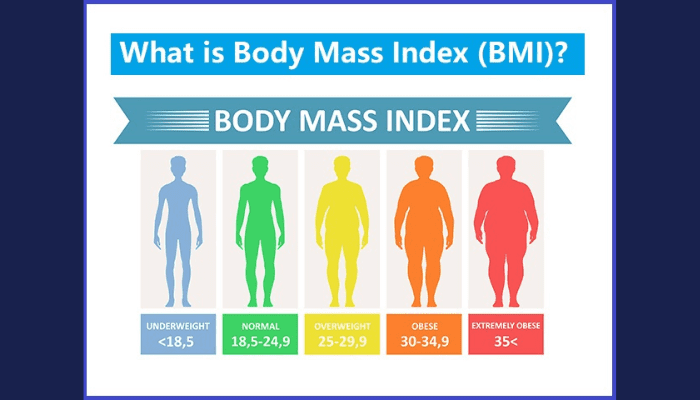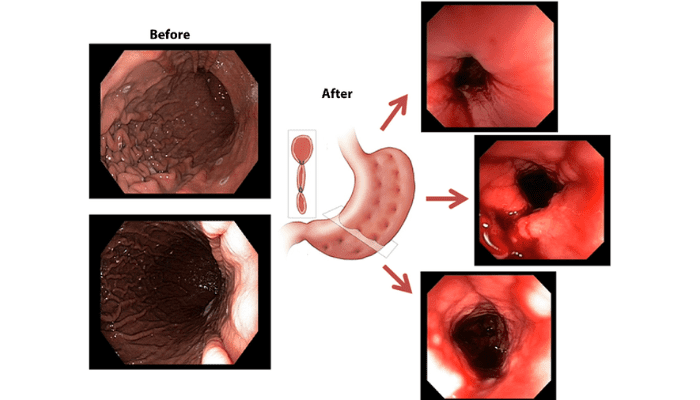
When considering gastric sleeve surgery, it is important to know what to expect regarding weight loss. A recent study looked at the average weight loss per month for patients who have had surgery. While there is significant variation from individual to individual, you can expect to lose about 1.5 kg per month on average. This information can help you plan for the future and set realistic expectations for how much weight you will lose after surgery.
What is Endoscopic Sleeve Gastroplasty?
Endoscopic sleeve gastroplasty (ESG) is a minimally-invasive, weight-loss surgery that shrinks the stomach by up to 80%. It is similar to gastric sleeve surgery, but instead of being performed through large incisions in the abdomen, ESG is performed through several small incisions using an endoscope.
ESG is typically recommended for people who are obese (BMI ≥ 30) and have failed to lose weight through diet and exercise alone. People with a BMI ≥ 35 and one or more obesity-related health conditions (e.g., type 2 diabetes, hypertension, obstructive sleep apnea) may also be candidates for ESG.

Expected weight loss after gastric sleeves
The amount of weight you lose in the first year after surgery tends to be the highest. Studies show that patients who have undergone gastric sleeve surgery can expect to lose anywhere from 50-70% of their excess body weight in the first 12 months. For example, a patient who starts at 300 pounds can expect to lose 150-210 pounds in the first year.
Of course, not everyone will lose weight at the same rate. Some people may see more dramatic results early on, while others may lose weight more slowly. And while the vast majority of patients will lose a significant amount of weight in the first year, some may only lose a few pounds.
It’s also important to keep in mind that weight loss is not always linear. You may lose weight quickly for several months and then hit a plateau where you don’t see any change on the scale. This is normal and expected. So don’t get discouraged – keep up with your healthy diet and exercise habits, and the weight will eventually start coming off again.

How do I know how much weight I have to lose?
There are several ways to calculate this, but one of the most accurate is your Body Mass Index (BMI). BMI is a calculation of your height concerning your weight. You can use our BMI calculator to determine your score.

What is BMI?
Body Mass Index (BMI) is a number calculated from a person’s weight and height. BMI provides a reliable indicator of body fatness for most people and is used to screen for weight categories that may lead to health problems.
Why is BMI important?
Carrying excess weight increases your risk for a number of health conditions, including diabetes, hypertension (high blood pressure), and cardiovascular disease. Measuring your BMI can give you an idea of whether you are at a healthy weight, overweight, or obese.
How do I calculate my BMI?
There are a few different formulas for calculating BMI, but the most common way to do it is by using the metric system. The formula looks like this: weight (in kilograms) divided by height (in meters) squared. Of course, you can also use our BMI calculator above.
What are the different categories of BMI?
There are five categories of BMI based on levels of risk:
Underweight = <18.5
Normal weight = 18.5–24.9
Overweight = 25–29.9
Obesity = 30–34.9
Severe obesity = 35–39.9
Morbid obesity = ≥40

Tell me the procedure for gastric sleeves?
The first step in the procedure is to make small incisions in the abdomen. A thin, lighted tube, an endoscope, is inserted through one of these incisions. The endoscope has a tiny camera, allowing the surgeon to see inside the stomach.
Next, small surgical instruments are inserted through another incision. These instruments are used to remove a portion of the stomach. Once the stomach has been removed, the surgeon will use surgical staples to close off the incisions.

The entire procedure usually takes less than an hour to complete, and most patients can go home the same day.
Patients will typically stay in the hospital for one or two nights so that they can be closely monitored. It is important to note that patients will need to stay on a liquid diet for about two weeks after surgery and then progress to soft foods before eventually returning to a regular diet.
Most patients expect to lose between 50 and 60 percent of their excess body weight within 12 to 18 months after gastric sleeve surgery. However, weight loss results will vary from patient to patient.

Who is Eligible for ESG?
Patients with a body mass index (BMI) of 40 or greater are typically eligible for ESG. However, patients with a BMI of 35 may also be candidates if they have significant health problems related to their weight, such as type 2 diabetes or sleep apnea. The best way to determine if you’re eligible for ESG is to consult with a board-certified bariatric surgeon.

Recovery Time
The incisions typically take two to three weeks to heal, whereas the stomach staple line typically takes six to eight weeks. However, most people can start a regular exercise regimen and are close to full recovery after a month.
Most people stay in the hospital for 1-2 days after the surgery. You will likely feel bloated and have some pain and discomfort for the first few days. You will be on a liquid diet for 2 weeks and then slowly transition to solid foods. It is important to avoid carbonated beverages and high-sugar foods as they can cause discomfort and slow down weight loss. Most people lose 20-30% of their excess body weight within 6 months of surgery.

Side Effects of ESG
Complications from ESG are rare but can include:
- Nausea and vomiting
- Bleeding
- Pain at incision sites
- Infection
- Swelling
- Leaks in stomach
- Leaks from staple or suture lines.
Benefits of ESG
There are several benefits of endoscopic sleeve gastroplasty over other weight-loss surgeries, including:
Minimally-invasive
Because ESG is performed through small incisions using an endoscope, it is considered a minimally-invasive surgery with a shorter recovery time than other procedures like gastric sleeve surgery or gastric bypass surgery.
Reduced risk of complications
The minimally-invasive nature of ESG also reduces the risk of complications like infections, hernias, and leaks.
Preserves digestive function
Unlike other procedures that involve removing or rerouting parts of the intestine, ESG preserves digestive function because it does not interfere with how food is digested and absorbed by the body.
Reversible
If necessary, ESG can be reversed because it does not involve permanent changes to the stomach or intestines.

Average monthly weight loss after gastric sleeves
The average monthly weight loss after gastric sleeve surgery is 8-12 pounds. However, this will vary depending on the individual. Some patients may lose more or less than this. The amount of weight loss can also be affected by factors such as age, activity level, and diet. Gastric sleeve surgery is typically considered successful if the patient loses at least 50% of their excess body weight.
It’s also important to keep in mind that weight loss is not always linear. You may lose weight quickly at first, then plateau for a few months before resuming your weight loss journey. This is normal and to be expected! Just because you don’t see the numbers on the scale going down as quickly as they were at first doesn’t mean that you’re not still losing weight; often, patients will lose inches off their waist even when the scale doesn’t show a significant change.

Will I gain the weight back after time?
In general, patients who undergo endoscopic sleeve gastroplasty will lose a significant amount of weight in the months following their procedure. However, it is possible for patients to regain weight if they do not follow their surgeon’s recommendations for post-operative care.
How to maintain weight loss after gastric sleeves?
Following are some tips for post-operative care that will help you avoid gaining weight back after your endoscopic sleeve gastroplasty procedure.
Follow your surgeon’s instructions for diet and activity level
After your surgery, you will need to follow a special diet to allow your stomach time to heal correctly. This diet will gradually progress from clear liquids to full liquids to solid foods. It is important that you stick to this diet so that your stomach can heal properly and avoid complications such as nausea, vomiting, and pain.
After your stomach has healed, you will be able to return to your regular diet slowly; however, it is important to avoid overeating and eating high-fat foods as they can cause nausea and vomiting. In addition, you should avoid strenuous activity for at least two weeks after your procedure to allow your incisions time to heal properly.
Attend all of your follow-up appointments.
After your surgery, you will need to visit your surgeon for regular follow-up appointments. These appointments are important as they allow your surgeon to monitor your progress and make any necessary changes to your treatment plan.
In addition, these appointments allow you to ask questions or voice any concerns you may have about post-operative care or the recovery process.
Take your vitamins and minerals as directed
To ensure that your body gets all of the nutrients it needs during recovery, you will be given a daily multivitamin and mineral supplement to take as directed by your surgeon. It is crucial that you take these supplements as required in order to avoid malnutrition and vitamin deficiencies.
Drink lots of water
It’s important to stay hydrated after surgery, but since you’ll have a smaller stomach, you’ll need to drink even more water than usual. Try carrying a water bottle with you everywhere you go and sipping on it throughout the day. You should also avoid drinks with caffeine or alcohol, as they can dehydrate you.
Join a support group
One of the best ways to stay on track after bariatric surgery is to join a support group for bariatric surgery patients. In these groups, you will meet other people who are going through the same thing as you are and who can offer support, advice, and guidance when needed.
Moreover, many bariatric surgeons require their patients to attend support group meetings as part of their post-operative care plan.
Make healthy lifestyle changes
Bariatric surgery should be seen as just one tool in your journey towards better health; it is not a quick fix or an easy way out. For bariatric surgery to succeed in the long term, patients must make healthy lifestyle changes such as eating healthy foods and exercising regularly. These changes can be complex, but they are necessary for your reach and maintain your ideal weight over the long term.

Is Gastric Sleeve Surgery Right for Me?
If you are considering gastric sleeve surgery, it’s important to speak with a qualified healthcare provider to see if this procedure is right for you. In general, gastric sleeve surgery may be an option if you:
- Have a body mass index (BMI) of 30 or higher
- Have been unable to lose weight through diet and exercise
- Have a serious health condition related to obesity
- Are committed to making lifestyle changes after surgery, such as following a healthy diet and exercise plan
- Are willing to take medications for the rest of your life
- Do not have any other major health conditions

How much does gastric Sleeve Surgery cost?
On average, gastric sleeve surgery costs between $15,000 and $23,000. However, as we mentioned before, several factors can affect the final price tag of gastric sleeve surgery. Here are some of the most important ones to keep in mind:
Geographical location
The cost of gastric sleeve surgery can vary widely depending on where you live. In general, procedures performed in major metropolitan areas will be more expensive than those achieved in smaller cities or rural areas. This is because surgeons in big cities tend to be more experienced and in higher demand than their counterparts in smaller communities.
The experience of your surgeon
It’s important to choose a surgeon who is experienced in performing gastric sleeve surgery. Not all surgeons are equally skilled, and you want to make sure you’re in good hands when undergoing such a major procedure. Experienced surgeons tend to charge more for their services than less experienced ones, but it’s worth it to pay a little extra to know that you’re in good hands.
Whether or not you have insurance
If you have health insurance, check with your provider to see if they cover gastric sleeve surgery. Some policies do cover this type of procedure, but many do not. If your insurance does not cover gastric sleeve surgery, you’ll be responsible for paying the entire cost out-of-pocket.
To get an accurate estimate of your procedure’s cost, consult with a few different surgeons in your area to get quotes.

Final Thoughts
Gastric sleeve surgery is a type of bariatric surgery that can help you lose weight by reducing the size of your stomach. Gastric sleeve surgery is typically performed on people who are obese and have been unable to lose weight through diet and exercise. The average cost of gastric sleeve surgery is between $15,000 and $23,000.
If you are considering gastric sleeve surgery, speak with a qualified healthcare provider to see if this type of procedure is right for you. Gastric sleeve surgery may be an option if you have a body mass index (BMI) of 30 or higher, have been unable to lose weight through diet and exercise, and are committed to making lifestyle changes after surgery.
Gastric sleeve surgery is a major investment, both financially and in terms of your time and commitment, so make sure you do your research before making a decision.
Frequently Asked Questions (FAQs)
How long off work after gastric sleeve?
The price range for bariatric surgery is $15,000 to $23,000. However, most patients who undergo a bariatric operation can do so because their health insurance plan covers the cost of the procedure.
How long does it take to recover from a gastric sleeve?
The incisions typically take two to three weeks to heal, whereas the stomach staple line typically takes six to eight weeks. However, most people can start a regular exercise regimen and are close to full recovery after a month.
How long after having a baby can you have a gastric sleeve?
At VIDA, our bariatric surgeons advise patients to postpone having the procedure until at least 18 months after giving birth or once they have reached a healthy weight. Women who experience physical problems after giving birth might have to wait longer.
What happens to the staples in your stomach after gastric sleeve surgery?
Your stomach's sliced edges are held together with staples so that they can heal. Similar to how sutures or stitches hold the skin together to help a cut heal. These staples are irreversible, as opposed to sutures. They neither disintegrate nor are eliminated.
What does a gastric sleeve leak feel like?
Symptoms of a gastric sleeve leak: Chest pain, breathing trouble, and breathing more quickly than normal; visible discharge coming from the wound; pronounced nausea and vomiting, hypotension; and left shoulder pain. Weakness all around and less urination.




